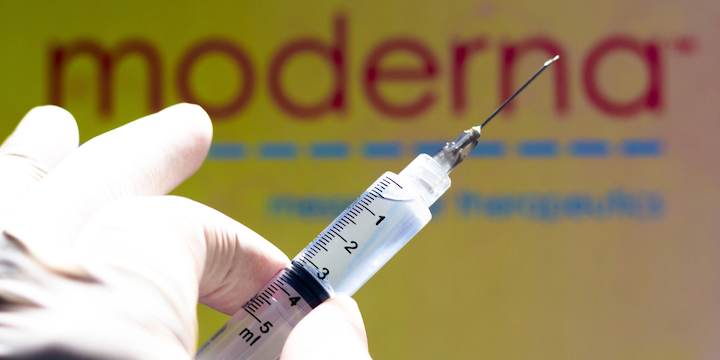“No specific safety problem identified that would prevent the issuance of an emergency authorization. “This is the opinion issued on December 15 by the American Medicines Agency (FDA) in one Moderna vaccine report.
If approved, Moderna’s vaccine would join with a week delay that of Pfizer / BioNTech, which received the green light from the FDA on December 11 in the United States.
Also read: Should we be afraid of covid vaccines?
Up to 95.6% effectiveness in people under 65
The analysis published by the FDA details that of the 30,400 participants in the clinical trial, 196 contracted covid-19 before November 21, including 11 among the participants who had received the vaccine and 185 among those who received a placebo.
The average efficiency was therefore 94.1%. It even rose to 95.6% for those under 65, against 86.4 for those over 65. Of the 196 cases of covid, the FDA observes that 30 were found to be serious, all in the placebo group.
No serious allergic reaction
Regarding the side effects, the most common are pain at the site of the injection (around 90% of cases), fatigue (70%), headaches and muscle pain (60%), as well as joint pain and chills (45%).
The rare “serious” side effects tended to appear in younger participants rather than their elders.
Lymphadenopathy, or swelling of the lymph nodes, occurred in 1.1% of participants who received the vaccine, compared with 0.6% of those who received the placebo.
The vaccinated group also showed more allergic or inflammatory reactions (1.5% versus 1.1% for the placebo group) but none of these reactions were considered serious.
A risk of facial paralysis?
The clinical trial also identified three cases of Bell’s facial palsy, usually temporary and not severe. One case occurred in a vaccinated participant and two in participants who received placebo.
The Pfizer-BioNTech vaccine trial had resulted in four cases of this paralysis, all in the vaccinated group. The FDA then recommended specific vigilance.
For both vaccines, the FDA deems the information it has to date insufficient to determine whether or not the vaccine is causing the paralysis. Similarly, serious life-threatening events of participants were rare, around 1% in each group, and there is no evidence that the vaccine was the cause.
Soon a vaccine in Europe?
A meeting of FDA experts is scheduled to be held on December 17, and when it is over, the agency’s green light will most likely be returned.
Like the Pfizer vaccine, the Moderna vaccine uses a new technology known as messenger RNA. The United States, United Kingdom and Canada have already started their vaccination campaign with the Pfizer vaccine. In Europe, the European Medicines Agency (EMA) is due to issue its opinion on the Pfizer vaccine on December 21.
 Cherry tomatoes contaminated with salmonella: 92 sick and 1 dead
Cherry tomatoes contaminated with salmonella: 92 sick and 1 dead  A better coaching method can make a person grow
A better coaching method can make a person grow  What is the method to prevent diabetes in children?
What is the method to prevent diabetes in children?  What are the effective factors in causing stomach ulcers?
What are the effective factors in causing stomach ulcers?  Why do embarrassing memories seem to appear at night?
Why do embarrassing memories seem to appear at night?  The amazing link between SARS-CoV-2 infection and newly started diabetes
The amazing link between SARS-CoV-2 infection and newly started diabetes  WHO says monkey pox is not a global emergency right now
WHO says monkey pox is not a global emergency right now  Single cell RNA sequencing uncovers new mechanisms of heart disease
Single cell RNA sequencing uncovers new mechanisms of heart disease  Hepatitis of unknown origin: 3 new deaths and 228 cases worldwide
Hepatitis of unknown origin: 3 new deaths and 228 cases worldwide 